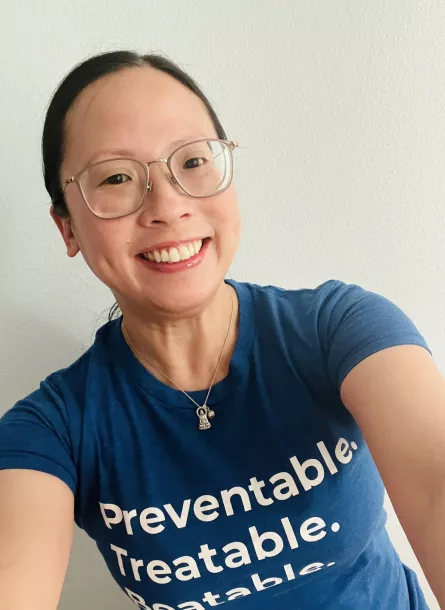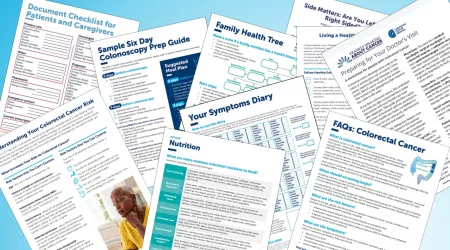
Clinical trials and colorectal cancer
You might want to talk to your doctor about clinical trial options as part of your treatment plan.
Finding a clinical trial can be intimidating, but we are here to help you explore your options and help you prepare a list of possible trials to discuss with your doctor.

Types of clinical trials
The list below explains different types of clinical trials.

Questions to ask yourself
Before you join a clinical trial, there are some things to consider. Ask yourself the following:
- Why do I want to participate?
- Am I willing to participate if I’m not getting the new treatment?
- Do I want to participate even if I do not benefit but others who follow may?
- Do I understand the risks and benefits and that I can opt out at any time?
- Do I have the time and resources to participate, including travel and childcare costs?

Questions to ask your doctor
It's important to talk to your doctor about joining a clinical trial. Below is a list of questions that you should go over together:
- What types of clinical trials are available for my cancer?
- What exclusion and inclusion criteria might make me a good
- What kinds of therapies, procedures, and/or tests will I have?
- How do the tests in the trial compare with those I would have outside of the trial?
- Will I be able to take my regular medications while participating in the trial?
- Where will I have my medical care and who will be in charge of my care?
- What are my possible short-term benefits and long-term benefits?
- What are the short-term risks (such as side effects) and possible long-term risks?
- Who can help answer any questions from my insurance company or health plan?
- Can I talk to other people in the study?
Clinical trial video library
Find the answers to your questions in our video series below.
Our Sponsors
Up Next
Finding the right clinical trialTop resources

Christy Williams: Biomarker testing leads to successful treatment
Statistics suggested that Christy’s odds of survival were grim, so she leaned into her faith and kept a positive outlook. She tried to control what she could. And, critically, she received biomarker testing.

EPIC Act to Advance New CRC Therapies Needs Support
The EPIC Act would encourage investment in clinical trials for additional uses of existing drugs.

Colorectal cancer resources for learning and sharing
Whether personally impacted by colorectal cancer (CRC), supporting a loved one, or dedicated to educating and empowering others, these downloadable and printable resources can help.














